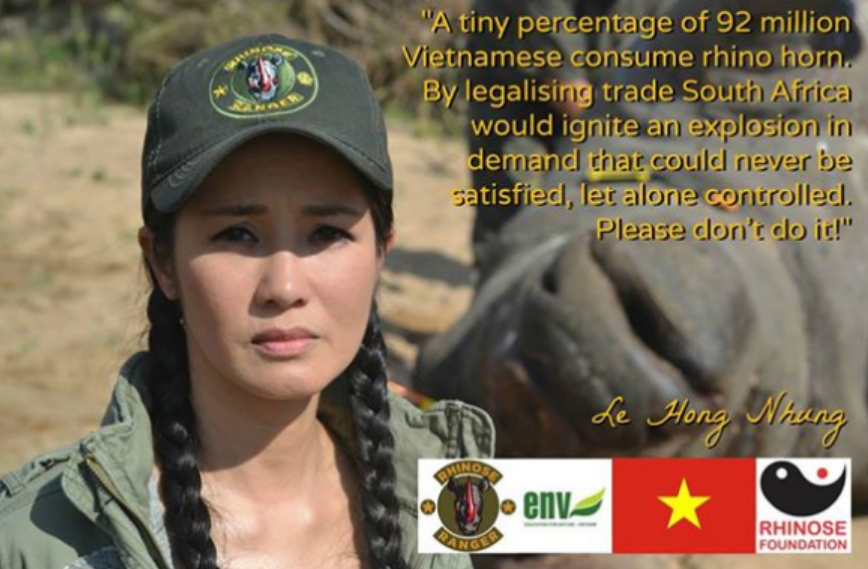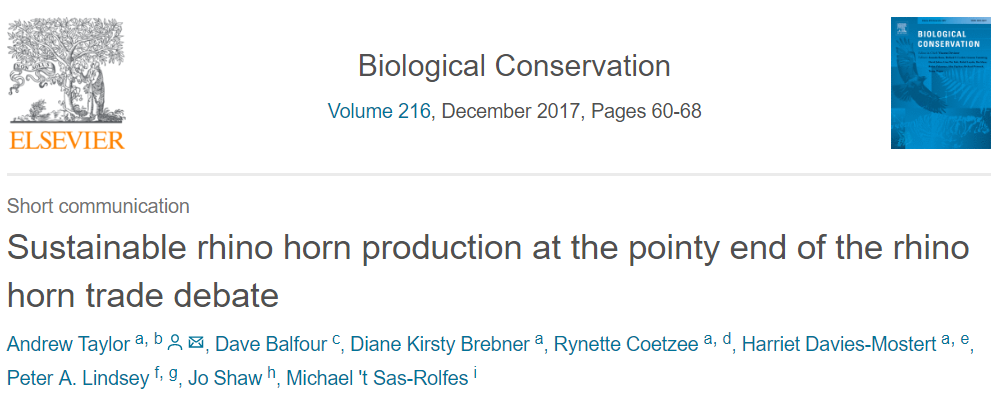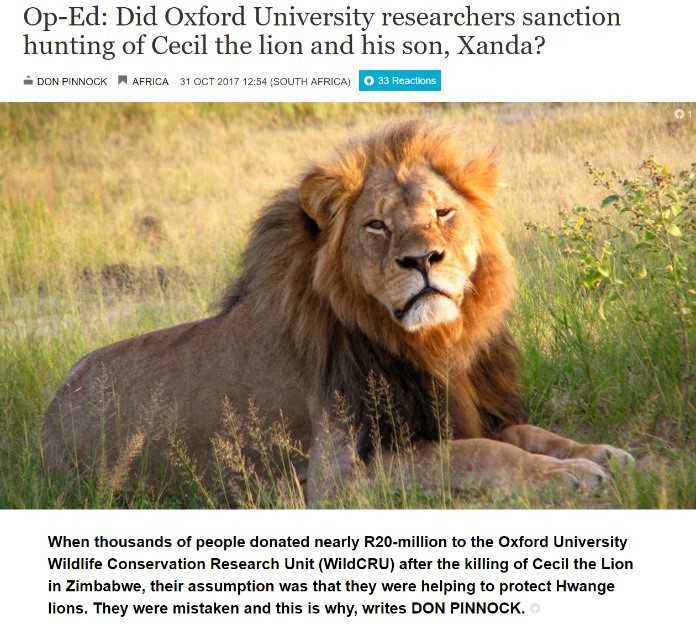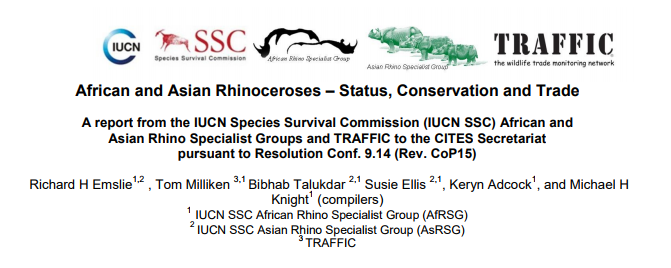
As many of Breaking The Brand’s long-term supporters and followers know, for the last few years, I have been very concerned about what is being written about the potential for a legal, international trade in rhino horn. While much has been written, very little has been said, by key conservation organisations or agencies, about what the current consumers are willing/not willing to buy. They just don’t appear to want to investigate this critical fact.
I must again clarify, by rhino horn consumers I ONLY mean the people who have the personal wealth to buy ‘genuine’ rhino horn. It is this group driving the current rhino poaching crisis; it is their purchasing behaviours that need to be changed; it is critical to know if they would buy horn from a farmed, domesticated rhino. All BTB’s research since 2013, which we have shared openly, has highlighted that the users driving the current rhino killing spree don’t see horn from a farmed rhino as a substitute product; it has no status to these buyers.
So again , it is disappointing to see yet another article about a potential international rhino horn trade, whose authors include key global conservation players, where again a ‘genuine buyer’ analysis was not mentioned, let alone considered in the research done.
The article: Sustainable rhino horn production at the pointy end of the rhino, can be purchased here.
When you are talking about trade, any research that doesn’t include what the consumers are interested in and willing to buy/not buy is, at best, naïve and at worst could be considered to be wilfully ignorant about the critical question of consumer desire.
It is interesting that while I was again wondering about the motivations of the global conservation sector working on the rhino issue and farming, the linked article came out exploring a similar questions about those researching lions and the hunting/trophy sector. As the article states ‘….many research units in Africa “do science” – often very valuable science – but do nothing to change the situation on the ground. They remain “neutral”..’ and it finishes with a question and statement ‘So does WildCRU think trophy hunting is good or bad for lions? Its preferred position, it seems, is on the fence. With lions in Africa under terrible threat, history may not judge them well on that.’
Similarly, how will history treat conservation bodies who have enabled the question of a rhino horn trade to be dragged out for years, because they haven’t asked the the consumers driving the current poaching crisis about their wild/farmed purchasing preference?
I’ve never heard the key conservation players voice if they think farming rhino for their horn is good (or bad) for rhinos. Their statements are more of the form:
- “In principle, we support sustainable use”
- “Asking questions about a legal trade is not in our organisations mandate”
When I reflect on what has been written about the potential for legalising trade over recent years, I wouldn’t say that these publications were always done in a ‘neutral’ or ‘sitting on the fence’ way. Given that, as with this most recent paper, if they don’t research consumer behaviour I would say they are building a case for trade and creating risk/benefit decisions based on flawed assumptions.
So, I find myself asking: Is this just more research noise to try to get the caring public (and donors) to think that conservation groups and agencies are doing everything to stop the poaching crisis?
Why co-author a paper that purports to be ‘neutral’ on the question of trade legalisation, when its sole purpose appears to be to demonstrate that enough rhino horn can be supplied to satisfy ‘presumed demand’ – without ever asking if the nature of the demand fits the type of supply offered.
The current rhino poaching crisis has been going for a decade. Over this time frame, why do key NGOs, who have been given access to significant amounts of funds as a result of this crisis, appear to be avoiding asking this one, key question of the current rhino horn consumers: Are you only interested in buying rhino horn from a rhino killed in the wild? Again, let me clarify, I ONLY mean the people who have the personal wealth to buy ‘genuine’ rhino horn. If the answer from this group is: Yes, I am not interested in horn from farmed rhino, then quite simply we know that a legal trade in rhino horn will not stop the poaching. The obvious consequence would be to take legalising trade off the table once and for all. Why won’t they ask this question? Something to think about!
Background Timeline (not all information has been included in this history, to read more)#
2013: From interviews with the primary users of rhino, starting in early 2013, the users confirmed that they weren’t interested in horn sourced from a farmed domesticated rhino, it had no status for these users and they didn’t consider it a substitute product. This desire of the Vietnamese elite for a wild sourced ‘product’ was also highlighted in the 2009 PhD thesis of Rebecca Drury: Identifying and Understanding Consumers of Wild Animal Products in Hanoi, Vietnam: Implications for Conservation Management. Rebecca also wrote about the lack of interested in a farmed product in her 2011 publication ‘Hungry for Success: Consumer Demand for Wild Animal Products in Viet Nam’.
2013: I started discussing BTB’s finding with conservationists in the large conservation sector working on the rhino poaching issue. The naïve hope was that they would research this themselves.
September 2013: First emails sent to journalist in South Africa and globally, who were writing about the rhino poaching crisis. In these emails, I mentioned rhino horn users in Viet Nam were not interested in horn from a farmed, domesticated rhino. Again, the naïve hope was that that they would add this information to any articles looking at the trade/no-trade debate.
2014: Continued to interview users of rhino horn about motivations and preferences
Feb/March 2015: Visit to SA to meet no-trade and pro-trade people about findings, including meetings with people from global conservation organisations and parks. In all meetings stated that BTB’s research indicated a farmed product is not seen as a substitute product by the wealthy Vietnamese elite who can afford to buy genuine, wild rhino horn. They are interested in the wild ‘product’ and so while the demand remains the poaching will continue.
June 2015: If the users REALLY wanted farmed rhino horn why isn’t Viet Nam farming their own? From the Blog: A recent trip to South Africa clearly showed the Breaking The Brand team that very few people understood the nature of the demand or the users of genuine rhino horn. This is obviously very concerning since the South African government appears to be actively pursuing a trade legalisation agenda and they are creating risk-benefit models for pro/anti trade decisions based on incomplete information…..Significantly, not enough people are asking the right questions: “Whilst we know that horns can be harvested for sale, are these the rhino horns that the wealthy users, driving the poaching of wild rhinos, will want to buy? Are farmed horns a substitute product for horns from wild rhinos to the primary user groups?” BTB’s research has always indicated a farmed product is not seen as a substitute product by the wealthy Vietnamese elite who can afford to buy genuine, wild rhino horn. They are interested in the wild ‘product’ and so while the demand remains the poaching will continue.
September 2015: Farmed Rhino Horn Not Seen As Substitute Product From the blog:

In addition to the users preference, in this blog I commented on another campaign: In relation to the pro-trade/no-trade debate, I was struck by a recent advert by the Education for Nature Viet Nam/Rhinose Foundation Partnership. The advert states that currently only a tiny percentage of the Vietnamese population consume rhino horn and legalising the trade could ignite an explosion in demand that could never be satisfied, let alone controlled. The statement ends on a plea – “Please don’t do it!”. Now my question is “Why haven’t the South African or world press asked the pro-trade people to respond to this statement/advert?” Education for Nature Viet Nam is largest and most well know local conservation agency in Viet Nam and they have made a clear and unambiguous statement.
If the pro-trade people say that they disagree are they saying ‘We know the Vietnamese better than the Vietnamese’?
And, if pro-trade people say they are better placed to analyse the Vietnamese users of rhino horn than ENV, then prove it. Why haven’t they published any user/market analysis they have done etc. Could it be that they haven’t done any???
January 2016: New Report – Understanding Urban Demand for Wild Meat in Vietnam: Implications for Conservation Actions This report found similar results to Rebecca Drury’s 2009 and 2011 papers. In the 2016 linked paper, the section on Farming states: For a ‘super-elite’ segment of Vietnamese society, whose members consume wild sourced animals to convey status and wealth, farmed sourced wild meat is not an appropriate substitute as it lacks the product characteristics needed to symbolically convey status and wealth–expense and rarity. Indeed, it is possible that the availability of substitutes in the market is causing these consumers to place increased emphasis on finding the rarer, wild specimens to assert inter-group differences in status and face. Where combined with a willingness and ability to pay rising prices, this could incentivize the exploitation of the last rare, wild individuals of farmed species, or alternatively, shift demand to those species whose biology precludes their being farmed.
This ‘super-elite’ are the same group who can afford to buy geniune rhino horn and they also want ‘wild sourced’.
June 2016: Smart Trade – NO, Foolish Assumptions – YES Blog highlights the worrying assumptions that are being made to try to justify a push for a legalised trade
September 2016: Reflections Leading in to CoP17 From the blog:
A submission to CITES from key players in the rhino conservation space highlights that while a consumer analysis has been undertaken, a couple of things are conspicuous in their absence:
- When the analysis was done, surely they could have asked the customers if they were interested in a farmed product or not, to get a definitive yes/no? Surely, finding out if there is or isn’t a business case for a legalised trade would be a good idea?
- In the Recommendations and Final Comments, many areas are covered, demand reduction is not mentioned at all.
When I have discussed this preference for wild horn with individuals working with some of the large conservation organisations I was told that an opinion on an trade legalisation is not within their mandate, so they don’t comment. Surely, what is right for the animal should be the priority, not the scope of an organisations mandate?
January 2017: Is Mainstream Media Contributing To The Rhinos Demise? From the blog: Of the 40 news articles I read, just one made mention of the user’s preference for a wild product over a farmed horn. The reality is, a fundamental question appears to have been forgotten! How is the media missing this?
Even though the pro-trade groups have had a lot of ‘help’ from the mainstream media, given the right question hasn’t been asked, they were still not able to tip the CoP 17 rhino horn trade outcomes in their favour. So you have to ask ‘If I was to put myself in to the shoes of a pro-trader, what would I do next in preparing for the 2019 CITES meeting?’. Well if it was me, I would be commissioning and funding research, to be done at some of the top universities around the world, on the trade question. This has already started, one university conducted research on traditional Asian medicine users in Viet Nam and concluded that their responses may indicate a basis for a legalised trade. I am not sure how they came to that conclusion given the average income of the people interviewed was less than USD $300 per month (median reported monthly income falls into the 3-to-5 million VND range, with the average monthly income being 6.5 million VND) whilst at the same time the paper stated that the cost of rhino horn is USD $28,000-100,000/kg.
March 2017: Trade Legalisation – A Greedy Person Is The Poorest Person In The World
April 2017: A Load Of Bollocks From the blog: On 11 April 2017, the International Trade Centre published a paper titled: Demand in Viet Nam for rhinoceros horn used in traditional medicine. The ITC paper focuses on Traditional Asian Medicine (TAM), not using rhino horn as a status symbol, which I will comment on later in the blog. It states that the ITC conducted a survey of 1,000 consumers of TAM, including 239 people who self-disclosed they used rhino horn.
So, the first questions must be:
- Did they interview the users of genuine rhino horn or those buying fake rhino horn?
- Just how relevant was their survey group to the trade/no-trade debate?
Now the paper itself states (page 54) that the price of illegally poached rhino horn [in Viet Nam] is US$8,400/100g. So, let’s look at the income of the group surveyed (page 12). Firstly, the publication conveniently omitted that this is income per [month], so what does that mean about the groups purchasing power for genuine rhino horn? Of the 1000 people interviewed, only 50 people earned more (but we don’t know by how much more) than US$882/Month. They can’t prove if they surveyed anyone earning a sufficiently high monthly income to guarantee they were (consistently) buying genuine rhino horn in relevant quantities.
This is like basing sales projections of LVMH handbags on interviews with people on welfare – it’s simply rubbish science. If the large conservation organisations don’t have the capability or nous to pick apart these agendas, then they are of limited use to the rhino.
June 2016: Recent Spike In Rhino Poaching
August 2017: The Elephant In The Room From the blog: As we get closer to the rhino horn auction, we must ask conservation organisations to make clear statements on what they support; do they support farming of rhinos and, as a result, can they clarify how farming = conservation?
In finishing again I ask 2 questions:
- Why are key conservation orgaisations avoiding researching rhino horn consumers wild/farmed preferences?
- How will history treat conservation bodies who have enabled the question of a rhino horn trade to be dragged out for years, because they haven’t asked the consumers driving the current poaching crisis about their wild/farmed purchasing preference?
Something to think about!
Like to read our blog posts? Subscribe Here.



